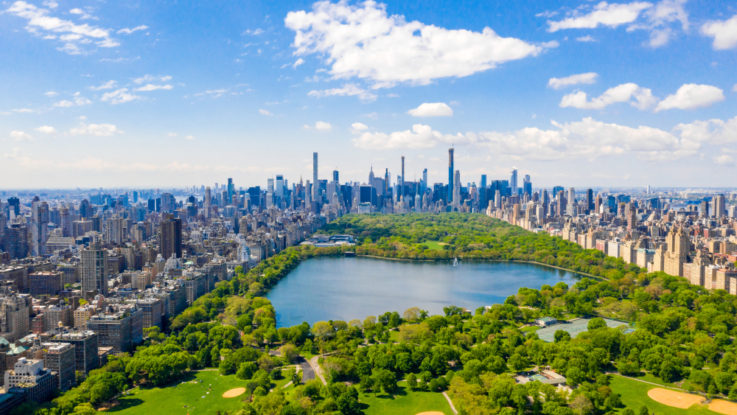
The Central Park Climate Lab has been created to study the impacts of climate change on urban parks. Its work will initially focus on New York City’s Central Park with the goal of working with cities around the United States to advance and implement future urban park strategies. The initiative is a joint effort by the Central Park Conservancy, the Yale School of the Environment, and the Natural Areas Conservancy.
“With about 55% of the world’s population now living in urban areas, urbanization plays an increasingly important role in how we manage and mitigate the impact of global climate change,” said Professor Karen Seto, professor of Geography and Urbanization Science at the Yale School of the Environment. “This collaboration aims to use mapping and other tools to develop urban interventions to protect their urban parkland and use them to mitigate and adapt to climate change.”
The project will begin in Central park and then expand to other parks in New York City and across the U.S. Researchers plan to use the data they gather to create new, scalable strategies for implementing climate mitigation and adaptation protocols in urban parks.
“Parks are essential for New Yorkers, as these last couple of years have proven, but flooding, high winds, and extreme temperatures pose a threat to their health,” said New York City Mayor Eric Adams. “The Central Park Climate Lab begins a new era in research and cooperation that will give our park professionals improved tools to combat the climate crisis, and it will be a model for urban parks across the country.”